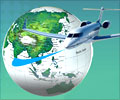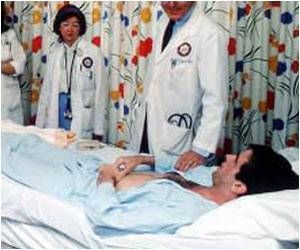Each summer, Julia Karstens of Germany has her teeth seen to in Serbia, where authorities are eager to lure tourists seeking cheaper medical bills amid the global economic crisis.
Each summer, Julia Karstens of Germany has her teeth seen to in Serbia, where authorities are eager to lure tourists seeking cheaper medical bills amid the global economic crisis.
"A friend of Serbian origin invited me to come with her to see a dentist in her country. This is how it all began," said Karstens.Karstens said she was "very satisfied with the quality of service," but insisted cheaper prices were the main reason for her trips to the former Yugoslav republic.
"In Germany, I pay 60 euros (80 dollars) for a tooth filling, while here the whole crown costs less," she explained.
Inspired by such cases, Serbia has begun to develop its medical tourism industry.
And, hit by fallout from the worldwide financial crisis, many in the West have been looking out for destinations where treatment can be much cheaper than in their home countries.
Serbia, while lacking the sun and sand of established medical tourism hubs mainly in Asia, was well positioned close to the European Union, with high standards of treatment, said its economic ministry.
Advertisement
Pindzo noted however that stronger investments were necessary in order to offer services which would satisfy the demands of foreign tourists.
Advertisement
"We have had customers coming even from Australia, Canada," he said.
Radivojevic said surgery in Serbia was much cheaper than in Western Europe.
"For breast augumentation, for example, the price is about 2,500 euros (3,320 dollars). This amount includes all prices linked to this service" including accommodation, he said.
"Nose surgery costs between 1,600 and 2,000 euros (2,120 and 2,650 dollars)."
Private-owned clinics have joined the ranks in order to promote medical tourism in Serbia, getting in touch with tourism officials and economic experts from various ministries.
The plan is to offer patients who come to Serbia surgery or other medical services while presenting them other benefits, like discovering the country's sites or visiting its numerous thermal spas, said doctor Ivana Vranic, one of the promoters of the initiative.
Public hospitals, mostly due to their obsolete infrastructure and outdated equipment, neglected during years of crisis and 1990s economic sanctions, are presently unable to offer such services.
The first offers of medical tourism in Serbia were mostly aimed at the country's large global migrant community who take advantage of family visits to obtain medical care at reasonable prices.
"They were happy with our services and recommended us to their friends. The word of mouth did the rest," Radivojevic explained.
Radivojevic said he is convinced the negative image of Serbia, present in the West during a decade of wars in 1990s in the Balkans, is now a thing of the past.
He said he had confidence in Serbia's future in medical tourism.
"The fear of the Balkans is beginning to disappear and we now have the same status as other clinics in the world," he said.
Source-AFP
SRM









